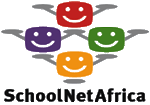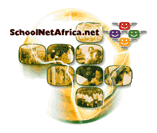ICT Policy Making
Making the Internet Count
A Manual for African Policy Makers. UNECA. A manual to help individuals and organisations to connect to the internet to send and receive information in a way that furthers rganisational goals and objectives.
Source: UNECA [1279]
http://www1.oecd.org/dac/ictcd/docs/matrixdocs/UNECA_paper2.pdf
Involving Civil Society in ICT Policy
This book is aimed at people who want to advocate for more just and enabling policy environments and is designed to build awareness of and capacity to engage in ICT policy-making spaces at international, regional and national levels, including the WSIS.
Source: APC [1278]
policy_wsis.pdf
Broadband Driving Growth; Policy Responses
Broadband connectivity is a key component in ICT development, adoption and use and is strategically important because of its ability to accelerate the contribution of ICTs to economic growth in all sectors.
Source: epol-net.org [1275]
Broadband_statement.pdf
Global Policymaking for Information and Communications Technologies
Enabling Meaningful Participation by Developing-Nation Stakeholders.
Source: markle.org [1274]
roadmap_report.pdf
ICT Policy: A Beginner's Handbook
APC's new book lays out the issues and dispenses with the jargon to encourage more people to get involved in ICT policy processes. This book is for people who feel that ICT policy is important but don't know much about it, e.g. a government official worried about a gap in her technical knowledge of how the internet works, a human-rights worker concerned that his need to send secure email is being challenged by national government policy, a citizen fed up with paying exorbitant rates for dial-up internet access and ready to organise. [1225]
http://www.apc.org/books
Bringing the benefits of ICT to Africa
In choosing its priority programmes, NEPAD focused on the importance of information and communication technologies(ICT) both in helping to extend and raise the quality of education at all levels in African education systems and also in imparting ICT skills to the African population in the workforce and in the communities at large. [1077]
Bringing_the_benefits_of_ICT_to_Africa.pdf
E-EDUCATION WHITE PAPER: CALL FOR WRITTEN SUBMISSIONS
The Department of Education invites stakeholder bodies and members of the public with an interest in Information and Communication Technologies in Education and Training to comment on the attached draft e-Education White Paper. [986]
eEducation_White_paper.pdf
An Information Policy Handbook for Southern Africa
A Knowledge Base for Decision-Makers [771]
http://www.apc.org/books/ictpolsa/index.html
Louder Voices
Strengthening Developing Country Participation in International ICT Decision-Making. [757]
Louder_Voices.pdf
Regulation and Internet Use in Developing Countries
Policymakers are simultaneously concerned about the consequences of a worsening “digital divide” between rich and poor countries and hopeful that information and computing technologies could increase economic growth in developing countries. But very little research has explored the reasons for the digital divide beyond noting that it is strongly correlated with standard development indicators, and no empirical research has explored the role of regulation. [539]
policymaking_and_internet.pdf
Policy factors to consider when introducing ICT in education
This section offers the policy makers various examples of goals, objectives, elements, and other characteristics that make up a typical policy on the integration of ICT in education.
Source: UNESCO [538]
http://www.unesco.org/bangkok/education/ict/ict_enabling/
guidelines/factors.htm
ICT Policy for Civil Society: Training Curriculum
The ICT Policy for Civil Society training course builds the capacity of civil society organisations to understand policy and regulation related to information and communication technologies (ICT) so that they can begin to engage and influence policy processes affecting ICT adoption and implementation at national, regional and global levels.
Source: APC [537]
http://www.apc.org/english/capacity/policy/curriculum.shtml
ICT Research Network
In this website you'll find research papers, conference presentations, articles, submissions and other documents which have been delivered at other conferences or seminars; published in journals, books or newspapers; commissioned for other agencies, or are shared as work in progress. [536]
http://link.wits.ac.za/research/research.html#2.2
Information Communications Technologies in Teacher Training: A Planning Guide
Teacher education institutions may either assume a leadership role in the transformation of education or be left behind in the swirl of rapid technolog- ical change.For education to reap the full benefits of ICTs in learning,it is essential that pre-and in-service teachers are able to effectively use these new tools for learning.Teacher education institutions and programmes must provide the leadership for pre-and in-service teachers and model the new pedagogies and tools for learning. [535]
ICT in teacher education.pdf
An Information Policy Handbook
The Information Policy Handbook for Southern Africa arose out of the need to document the processes and lessons learnt from the various information policy initiatives that have taken place in Southern Africa since the beginning of the '90s. The need to learn from our past experiences and build on those experiences (both positive and negative) for future actions, has determined what content was eventually included in this Handbook. [534]
http://www.apc.org/books/ictpolsa/index.html
Civil society’s Contribution Towards the Emergence of the Information Society in Cameroon
The emergence of the information society in Cameroon has caused a number of disturbances, not least through civil society’s involvement in the formulation of policies and strategies relating to ICT appropriation. For those familiar with the Cameroonian Government’s tradition of secret-keeping, overcautiousness, and jealous protection of its prerogatives, recourse to third parties in formulating policies and strategies is a paradigmatic change, and one which cannot simply be explained by the complexity of the ICT phenomenon, the size of the challenges or pressure from international cooperation organisations . [532]
http://africa.rights.apc.org/research_reports/cameroon.pdf
Civil Society and National NICT Policy in Benin
With a current population of about six million people, Benin has a poorly developed telecommunication infrastructure in spite of being connected to the Internet since 1995. There are few civil society organizations and most work primarily in "traditional" areas of health, education, human rights and rural development. A few have recently began work in the area of ICTs. [531]
http://africa.rights.apc.org/research_reports/benin.pdf
Egypt ICT Country Report
With more than 14,000 official civil society organizations (CSOs) working in diverse aspects of social life , Egypt’s CSO sector is active and far reaching. Despite this proliferation of CSOs Egypt does not have an active grass roots presence in the Information and Communication Technology (ICT) field. The absence of a strong CSO presence in ICT is mainly due to the lack of early availability of Internet connection through Egyptian academia, semi-governmental bodies. [530]
http://africa.rights.apc.org/research_reports/egypt.pdf
African ICT Policy Monitor
This site offers research reports on the participation of Civil Society in National ICT Policy-Making in Africa . [529]
http://www.apc.org/english/rights/africa/index.shtml?-1-'ICT%20Policy'
Developing a policy on ICT in education
The use of information and communication technologies (ICTs) in education is a recent development in Asia-Pacific. Few countries can claim genuine integration of ICT into their educational policies. The same is true for school curricula, teaching, and teacher training programmes. This website is being set up to assist countries as they plan or continue to embark on the use of ICT in education. [528]
http://www.unesco.org/bangkok/education/ict/ict_enabling/
developing_policy/main....


